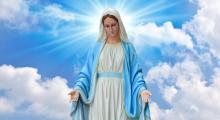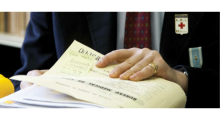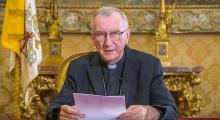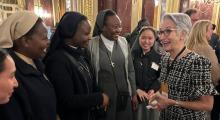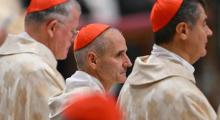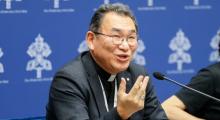Issued by the Catholic Center for Studies and Media - Jordan. Editor-in-chief Fr. Rif'at Bader - موقع أبونا abouna.org
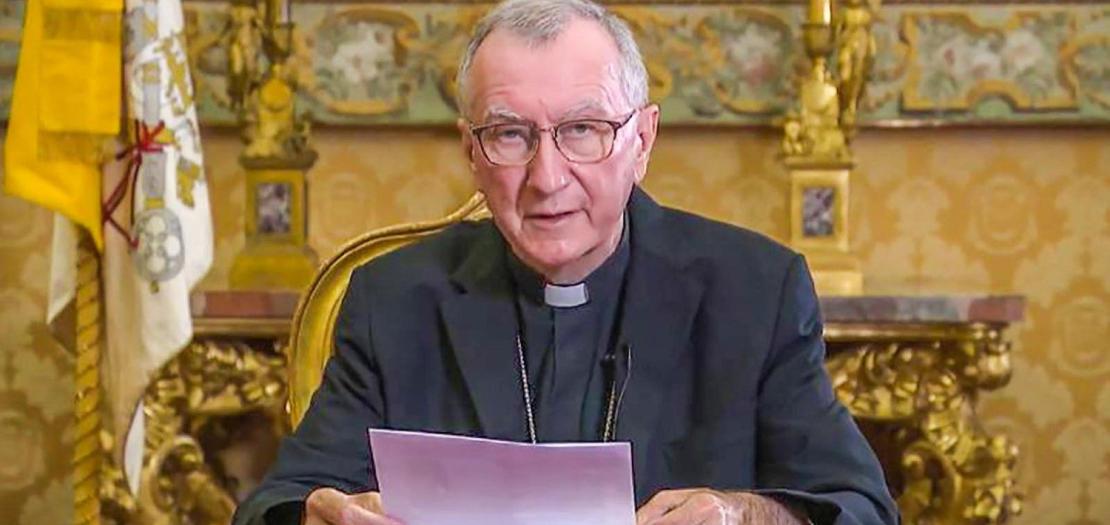
Cardinal Pietro Parolin, Secretary of State, expressed concern over how quickly things unfolded in Syria, where a regime that seemed so solid was "swept away." His hope is that those who take power can create "a system respectful of everyone." He was speaking just days following the fall of President Assad at the hands of rebels, while now in Damascus the nation's government palace hosts meetings to form a new transitional government.
Cardinal Parolin is in Milan, Italy, for a meeting at the Università Cattolica del Sacro Cuore entitled "Studies for Dialogue. Al Issa Research Award for Arab-Islamic Studies," during which a research grant promoted by the Secretary General of the Muslim World League, Muhammad Al-Issa, for young researchers focusing on Arab-Islamic culture will be presented.
Rapid changes
The rapid developments in Syria offer "a good opportunity to continue building bridges" with the Muslim world, Cardinal Parolin commented speaking with journalists who asked for his reaction about the current situation. The most pressing issue is the turmoil of the past 72 hours in Syria. "I believe we are all concerned about what is happening in Syria, particularly because of the speed with which events have unfolded. It's difficult to understand what is going on," the Vatican Secretary of State emphasized. "It is striking to me that a regime that seemed so strong, so solid, has been completely swept away in such a short time."
Hopes for openness
There are cautious hopes a system open and respectful of all. "Let us now see what scenarios unfold... Perhaps it is a little premature to speculate," he says, adding, "We have had some indications about respect for Christian communities, so we really hope that there can be a future of respect for all." The hope "is that those who come to power will try to create a regime that is open to and respectful of everyone."
The Holy See continues its work of dialogue and diplomacy, though it does not have "formal roles," the Cardinal clarified. In Ukraine, for example, "no formal negotiations have been initiated, but we take respond to all situations to look for conditions that allow dialogue and problem-solving, such as ceasefire agreements, the release of hostages in the Middle East, and humanitarian aid. These are all areas in which we are actively engaged."
The importance of dialogue
As always, dialogue remains a priority. The event at the Università Cattolica del Sacro Cuore marks an opportunity to strengthen the bridges between different religious cultures that share contemporary society. "A timely opportunity," Cardinal Parolin emphasises. "I am very pleased that an institution like the Università Cattolica has taken the lead in this initiative, allowing for mutual understanding, deepening knowledge, and fostering collaboration." "I believe," the Cardinal concluded, "that the challenge today is to collaborate in responding to the many problems and difficulties the world faces. We need to recover synergy and cooperation."
Cardinal Parolin’s engagements
Cardinal Parolin is in Milan participating in the conference at the Università Cattolica del Sacro Cuore alongside University Rector Elena Beccalli, together with Muhammad Al Issa and Wael Farouq, Associate Professor of Arabic Language and Literature. Late on Tuesday 10 December morning, the Cardinal will celebrate the Mass in preparation for Christmas, and in the afternoon, he will attend the 4 p.m. presentation of the book "For a New Economy" by Dr. Beccalli, which explores the limitations of the current economic paradigm and proposes a new model based on ethics, trust, and cooperation. The event will also feature greetings from the Archbishop of Milan, Mario Delpini, and participation from, among others, Alberto Quadrio Curzio, President-emeritus of the Accademia dei Lincei.


